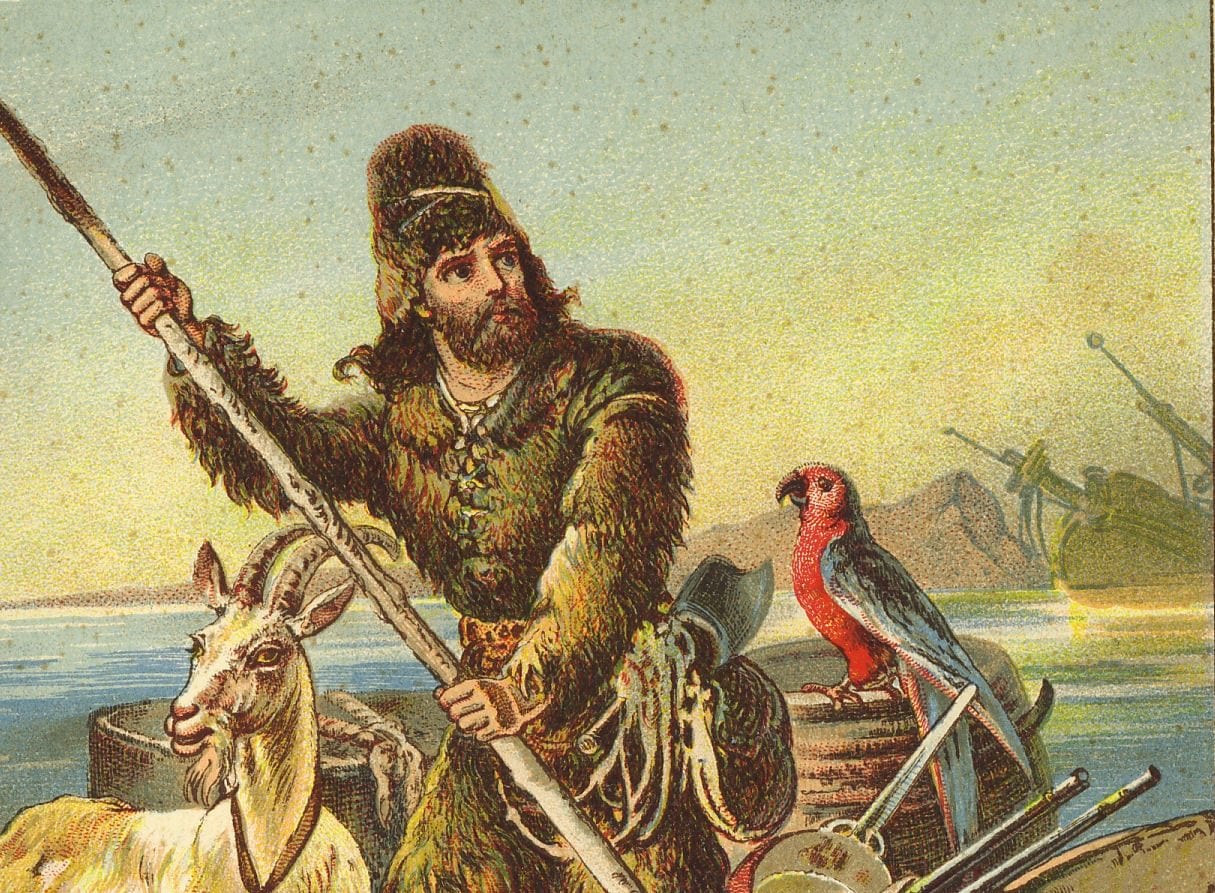I hope you will understand: I am not an advocate for tobacco. But there’s an ember inside me that flares up just a little for the thoughtful space a puff on a pipe or cigarette allotted us, back when we used to light those up.
In the 19th-century novel I’m reading right now, The Moonstone, there is a good example. A character named Betteredge finds himself faced with a maelstrom of rapidly changing news events — many of which he cannot understand.
Sound familiar? It did to me.
But instead of relying on news sources or experts of his time to help him explain things, Betteredge, a sort of butler, does two surprising things. He “takes a turn on his pipe” and flips through a dog-eared copy of Daniel Defoe’s 1719 desert-island classic, The Adventures of Robinson Crusoe.
“Such a book as Robinson Crusoe never was written,” insists Betteredge, “and never will be written again.” “When my spirits are bad — Robinson Crusoe. When I want advice — Robinson Crusoe.”
The more I read on, the more it became clear that Betteredge was discovering answers to life’s questions in the pages of a dusty narrative about a shipwrecked sailor stranded on a tropical isle.
Hmmm, I thought. Could I try this for myself?
With a presidential election and a global pandemic going on, what I needed wasn’t more poll results or media prognostication. It was an oracle. And Betteredge had had vast success in using Robinson Crusoe in exactly this way.
Relying on the butler’s favorite technique, whenever I found myself concerned about a current issue or quandary, I cracked open my copy of Robinson Crusoe to a random page to see what answers might lie there. Here is a small sampling of what I discovered:
- When I asked the book about the issue of national polarization and the inability to listen to opposing views, my fingers landed almost immediately on this:
How I had repined at my solitary condition; and now what I would give to be on the shore again! Thus we never see the true state of our condition till it is illustrated to us by its contraries, nor know how to value what we enjoy, but by the want of it.
- When I questioned Crusoe on the growth of income inequality and whether this deserved national attention, the book flopped open to the following:
I should always find the calamities of life were shared among the upper and lower part of mankind; but that the middle station had the fewest disasters, and was not exposed to so many vicissitudes … that temperance, moderation, quietness, health, society, all agreeable diversions, and all desirable pleasures were the blessings attending the middle station of life.
- On asking the book about the issue of waste and damage to the environment, it seemed to slip from my hand, splayed on the floor, and fell open at this:
All I could make use of was all that was valuable. I had enough to eat and to supply my wants, and what was all the rest to me? If I killed more flesh than I could eat, the dog must eat it… If I sowed more corn than I could eat, it must be spoiled. The trees that I cut down were lying to rot on the ground. I could make no more use of them than for fuel. In a word, the nature and experience of things dictated to me … that all the good things of this world are no farther good to us than they are for our use.
- When I picked up Robinson Crusoe while concerned about our reliance on an ever-growing tide of data and information, the book tipped over onto my iPad, blocking its screen. I opened it up and read this:
How wonderfully we are delivered when we know nothing of it … when sense, our own inclination, and perhaps business has called to go the other way, yet a strange impression upon the mind from we know not what springs, and by we know not what power, shall overrule us to go this way…. I … made it a certain rule with me, that whenever I found those secret hints or pressing of my mind to doing or not doing any thing that presented … I never failed to obey.
- And last but not least, when I happened to be wondering about lightning-fast changes in politics and in the rest of the news, the pages of my copy of Robinson Crusoe seemed to catch a breeze, riffling, flapping, and finally settling at a point where I saw this:
How strange a chequer-work of Providence is the life of man! And by what secret differing springs are the affections hurry’d about as differing circumstances present! Today we love what tomorrow we hate; today we seek what tomorrow we shun; today we desire what tomorrow we fear; nay, even tremble at the apprehensions of.
That settled it. I was convinced. I declared myself finished with the flood of info and opinions that had filled up my computer and TV screen.
The Adventures of Robinson Crusoe had proven itself — serving me far better than contemporary columnists and cable news.
Now, I had one more task: It was time to take a turn on my pipe.
That is, if I could find one.
Peter Mandel is an author of children’s books including Jackhammer Sam (Macmillan) and Bun, Onion, Burger (Simon & Schuster).
























